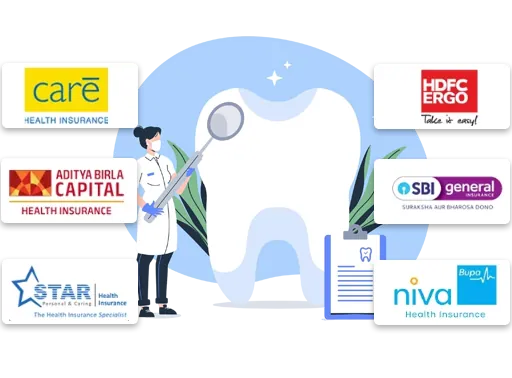Policy Period In Health Insurance




Simran is an insurance expert with more than 4 years of experience in the industry. An expert with previous experience in BFSI, Ed-tech, and insurance, she proactively helps her readers stay on par with all the latest Insurance industry developments.
Reviewed By:

Anchita has over 6 years of experience in content marketing, insurance, and healthcare sectors. Her motto to make health and term insurance simple for our readers has proven to make insurance lingos simple and easy to understand by our readers.
Updated on Jul 02, 2025 4 min read
Policy Period in Health Insurance: An Introduction
In an era where healthcare costs are rising exponentially, securing robust health insurance isn’t merely a luxury but a fundamental necessity. According to a report by the National Sample Survey Office (NSSO), out-of-pocket expenditure accounts for over 62% of healthcare financing in India, often pushing families into financial distress. Against this backdrop, understanding every facet of a health insurance policy becomes critical, and perhaps no element is as foundational yet frequently overlooked as the "policy period."
Selecting the coverage period for your health insurance is as important as choosing affordable premiums. Time is an important factor when comparing health insurance plans. Your policy coverage benefits and features change with the increase or decrease of the policy period.
The policy period in health insurance is an important aspect affecting premiums, coverage features, offering multiple benefits, and more. In this article, we explore how?
What Is the Policy Period In Health Insurance?
The policy period in health insurance refers to the duration for which your health insurance coverage remains active. It is the time frame during which the insurance company is liable to provide financial coverage for medical expenses as per the terms and conditions of your policy. Understanding the policy period is crucial for every policyholder, as it directly impacts when you are covered and when you need to renew your policy.
You are free to choose your policy term for:
- 1 year
- 2 years, or
- 3 years
The Health Insurance policy period may vary from insurer to insurer. It entirely depends on you to select the policy period, and after the completion of said period, your health cover lapses until renewed.
How Does Policy Period Affect Health Insurance Premiums?
Let us understand how choosing the right policy period affects health insurance premiums through an example.
Ankit purchased a health cover of INR 5 lakhs at annual premium price of INR 8,000
- If Ankit purchases his health policy with a policy period of 1 year, he will pay INR 8,000 during the policy period. The premium might increase at the time of renewal, as per the terms and conditions at the time of renewal.
- However, if Ankit opts for a 3-year policy period, the health insurance provider will offer him a long-term discount in overall premiums. Instead of paying INR 24,000 for 3 years, Ankit may pay only INR 21,000 after the long-term policy discount given by the health insurance provider.
- Additionally, Ankit will not be affected by health insurance premium revisions done by the insurer. He will be insured at a premium price of INR 21,000 for 3 years regardless of the policy premiums increasing from INR 8,000 to 9,000.
Minimum And Maximum Policy Period In Health Insurance
The minimum policy period in health insurance is 1 year. When purchasing a health insurance plan, you will have to purchase a health insurance plan for at least 1 year.
Whereas, the maximum policy period in health insurance may vary from insurer to insurer. The maximum policy period in India is up to 3 years.
Things To Consider When Choosing A Policy Period
Consider this as your checklist when selecting your ideal policy period in health insurance:
Your Age and Health Status
If you are in your early 20s you can opt for a 1-year policy term, as premiums are comparatively cheaper in your 20s. You must consider selecting a longer policy period in your 30s and 40s as health insurance premiums will not be so cheap anymore.Health Policy Premiums
Selecting a health insurance policy period for 1 year will result in a higher premium against a 2 or 3 year policy period. Long-term policy periods in health insurance ensure discounts provided by health insurers.Your Budget
When opting for a policy period in health insurance, you must consider your health insurance budget. Make sure to choose a policy period and premium payment mode that fits your pocket and you can pay premiums easily without the need to miss on premium payments.Renewability of Health Insurance
Most health insurance policies are renewable which means you can renew your health plan after 1 year of the policy period. However, many health insurance plans are not renewable, consider renewability when selecting a policy period in health insurance especially if you are purchasing it for a senior citizen.Family Health Plan
Policy period in health insurance must be considered when selecting a health plan for your family. Most family consists of members of various age groups, you have no idea when someone might need health insurance coverage, so why take the risk? When purchasing a family health plan, always aim for a maximum policy period. This ensures that all family members are always covered under the umbrella of an active health insurance plan.
Types of Waiting Periods in Health Insurance
Here are the main types of waiting periods you’ll encounter in health insurance:>
Initial Waiting Period (or Cooling-Off Period):
Duration: 15 to 30 days
Purpose: It applies to almost all new health insurance policies. During this period, no claims for any illness (whether planned or emergency) are covered, except for accidental hospitalization.
Pre-Existing Disease (PED) Waiting Period:
Duration: 1 to 4 years
Purpose: A pre-existing disease is any condition, ailment, injury, or disease that was diagnosed by a physician or for which the insured received medical advice or treatment within a specified period (e.g., 48 months) prior to the first policy issuance.
Specific Disease/Ailment Waiting Period:
Duration: 1 to 2 years.
Purpose: Even if certain conditions are not pre-existing, insurers apply a waiting period for specific ailments or procedures that tend to develop slowly or are elective in nature. This list is explicitly mentioned in the policy document.
Maternity Benefit Waiting Period:
Duration: 9 months to 4 years
Purpose: If your policy includes maternity coverage (which is often an add-on or a feature in specific plans), expenses related to pregnancy, childbirth (normal or C-section), and sometimes newborn baby care are covered only after this waiting period.
Critical Illness Waiting Period:
Duration: 90-day (3-month).
Purpose: This applies specifically to the diagnosis of critical illnesses (e.g., cancer, heart attack, stroke). The lump sum benefit associated with critical illness plans is payable only if the diagnosis occurs after this waiting period.
Accidental Hospitalisation Waiting Period:
Duration: no waiting period (0 days)
Purpose: Since accidents are unforeseen and require immediate medical attention, most health insurance policies provide coverage for hospitalisation due to accidents from day one.
Health Check-up Waiting Period:
Duration: 1 to 3 continuous claim-free years
Purpose: Encourages policyholders to maintain continuous coverage and promote preventive care over time.
What is a Cooling-Off Period in Health Insurance?
When most people in India refer to a "cooling-off period" in health insurance, they are usually talking about the "Free Look Period," which allows you to cancel a newly purchased policy within a specific timeframe (15-30 days) and get a refund. Less commonly, it can also refer to a mandatory waiting period after recovery from an illness before an individual is deemed eligible to purchase a new health insurance policy.
Concluding Note
Selecting a policy period in health insurance is as necessary as selecting the sum insured or premium prices of a health policy. It can save you big bucks and protect you from premium revisions done by your health insurance provider.
Confused still? Connect with our insurance experts to understand the ideal policy period in health insurance for you and your family.
Consult for Personalized Insurance Advice

But how does it work?
Schedule a call with India’s number 1 trusted advisor with a 4.5+ rating on Google. We are not your average insurance agents. Our advisors are experts in their insurance knowledge and will give you the right information at the right time. The service is free of cost! Don’t worry, we won’t spam as we value your time.
Health Insurer Network Hospitals
Policy Period In Health Insurance: FAQs
1. What is the policy period in health insurance?
The policy period in health insurance is the time duration during which a health insurance provider covers you and your family against planned and emergency hospitalization, along with other medical necessities.
2. What is the ideal policy period for me?
Selecting a policy period is as essential as selecting the sum insured, and features. The policy period in health insurance varies as per individual needs. You can choose between 1 to 3 years of the policy period.
3. How will my policy period affect policy premiums?
Policy period affects health insurance premiums as long-term policy periods offer policyholders long-term discounts in their overall premiums making it affordable for you.
4. What is the minimum policy period in health insurance?
The minimum policy period in health insurance is 1 year.
5. What is the maximum policy period in health insurance?
The maximum policy period in health insurance varies from insurer to insurer. Generally maximum policy period in health insurance goes up to 3 years.
6. Can I Claim Health Insurance After 1 Month of Buying the Policy?
Generally, no, not for most illnesses. Most health insurance policies in India come with an Initial Waiting Period, also known as a Cooling-Off Period, which typically ranges from 15 to 30 days from the policy’s inception date. During this initial period, you cannot make claims for any illness or medical condition, whether it’s a new diagnosis or something you’ve had for a while.
7. What Does the 12-Month Waiting Period for Pre-Existing Conditions Mean?
A "12-month waiting period for pre-existing conditions" means that if you have a health issue or ailment that was diagnosed or treated before you purchased the health insurance policy, any medical expenses related to that specific condition will not be covered for the first 12 months (one year) of your policy’s active period.
8. Is It Possible to Reduce the Waiting Period in a Health Insurance Policy?
Yes, in some cases, it is possible to reduce or even waive certain waiting periods in a health insurance policy.
Health Insurance Companies
Know More About Health Insurance Companies
Share your Valuable Feedback
5
Rated by 7 customers
Was the Information Helpful?
Select Your Rating
We would like to hear from you
Let us know about your experience or any feedback that might help us serve you better in future.


Written By: Simran Kaur Vij
Simran is an insurance expert with more than 4 years of experience in the industry. An expert with previous experience in BFSI, Ed-tech, and insurance, she proactively helps her readers stay on par with all the latest Insurance industry developments.



















Do you have any thoughts you’d like to share?